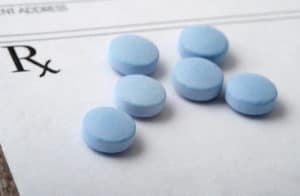
Medications prescribed for the injured worker are expected to be included in the MSA to gain approval by the Centers for Medicare and Medicaid Services. There are exceptions; however; such as when it can be demonstrated the injured worker is no longer taking the medication. But switching from brand-name to generic medications is one of the most efficient and effective ways to reduce costs.
Click Link to Access Free PDF Download
“8 ‘Think Outside the Box’ Tactics to Settle Workers’ Comp Claims”
Generics vs. Brand-Names
Some people are concerned that generic drugs are of lower quality than brand-name medications. The Food and Drug Administration stipulates that all generic drugs must be equivalent to their brand-name counterparts. Additional FDA requirements include:
- That generic drugs have the same active ingredient, strength, dosage form, and route of administration as the brand-name drug.
- The generic manufacturer must prove its drug is the same (bioequivalent) as the brand-name drug.
- All manufacturing, packaging, and testing sites must pass the same quality standards as those of brand-name drugs.
- Any generic modeled after a single, brand name drug must perform approximately the same in the body as the brand name drug.
The FDA also points out that many generic drugs are made in the same manufacturing plants as brand-name drugs.
Are there differences between generics and brand name drugs? Yes, but as the FDA points out: “There will always be a slight, but not medically important, level of natural variability just as there is for one batch of brand name drug compared to the next batch of brand name product. This amount of difference would be expected and acceptable, whether for one batch of brand name drug tested against another batch of the same brand or for a generic tested against a brand name drug.”
Generic drugs are cheaper than brand-names because the manufacturer making the generic version does not have to go through costly clinical trials that new drugs do. Also, they don’t generally pay to advertise, market or promote the drug, since the brand-name maker has already established the drug in the marketplace. The competition created by multiple manufacturers developing a generic version of a brand-name medication further drives down the price of the medication.
The only reason for any patient to use a brand-name over a generic medication is if the generic drug causes unusual side effects to a particular person or, in rare cases, is less effective. In the vast majority of cases, patients do just as well with generic medications as with their brand-name counterparts.
The biggest difference between generic and brand name medications is the price. A case study of a recent MSA is a dramatic example of this.
Case Study (Provided by Tower MSA Partners): More than $1.5 Million in Savings Through Generic Substitutes
An injured worker who had been diagnosed with Post Traumatic Stress Disorder, anxiety and mood disorders was taking a variety of medications to treat his conditions. Among the more costly drugs were Wellbutrin, Klonopin, Rozerem, and Neurontin — all brand-name medications.
When discussions about settling the claim began, the initial MSA included $1,657,022 for medications and $30,058 for future medicals.
Total MSA Exposure — $1,687,081.
Solution
After identifying the brand-name medications as the key cost drivers in the initial MSA allocation, Tower recommended working with the injured worker’s attorney and the treating physician to switch to generic substitutes. The switch from brands-to-generics took several months to complete, to ensure the effectiveness of each.
When the conversion was completed, a physician’s statement was obtained confirming the switch from brand to generic, as well as an updated prescription history documenting ongoing generic use. Tower promptly submitted an MSA with an allocation of $112,572.
Results
CMS approved the MSA within eight days, allowing the parties to settle. The switch from brand-name to generic medications resulted in savings of $1,574,509 — and assured the injured worker would have enough funds for his future medicals and medications.
Conclusion
Developing and getting FDA approval for a medication is a long, complicated process. Drug manufacturers charge for a medication based on their expenses for creating and bringing the drug to market. Once the patent expires for a particular medication, other manufacturers are free to produce the same drug — as long as it meets the FDA standards for generics; i.e., it is the same drug.
The cost difference between generic and brand-name medications continues to grow further apart. By carefully looking at the medications prescribed for an injured worker and working with various stakeholders involved, an appropriate, cost-effective MSA can be created.

Contact: mstack@reduceyourworkerscomp.com.
Workers’ Comp Roundup Blog: https://blog.reduceyourworkerscomp.com/
©2019 Amaxx LLC. All rights reserved under International Copyright Law.
Do not use this information without independent verification. All state laws vary. You should consult with your insurance broker, attorney, or qualified professional.
























